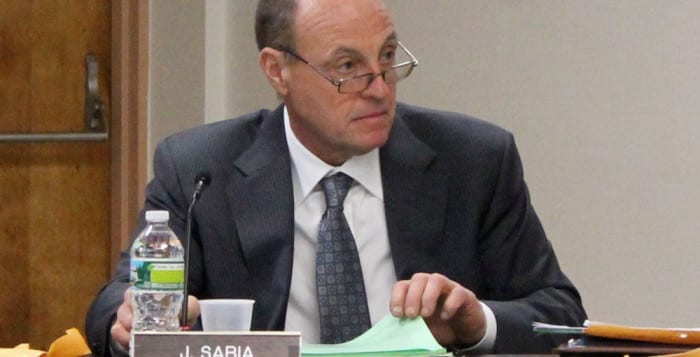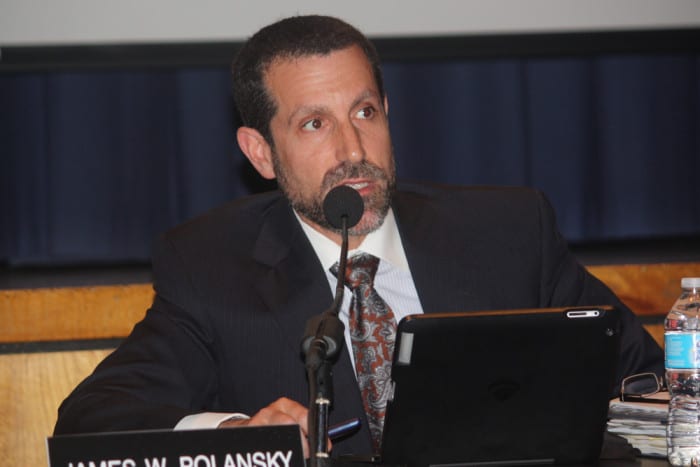On Nov. 6, voters will be lining up across Suffolk County at polling places, though if some school officials in the county could have it their way, by Election Day 2019 votes will be cast elsewhere.
Despite the fact schools are used as polling places near-universally, recent pushes for additional school security from communities have made several North Shore superintendents question why they should be forced to allow strangers into their buildings.
“You have to admit anybody onto school campus who comes to vote, so those actions and best practices for security that we observe every day, we can’t observe on Election Day,” said Elwood school district Superintendent Kenneth Bossert. “Schools are allowed to make their own rules for every school day, but on Election Day we have to defer to the [Suffolk County] Board of Elections, and in effect our facilities become their facilities.”
“Schools are allowed to make their own rules for every school day, but on Election Day we have to defer to the [Suffolk County] Board of Elections, and in effect our facilities become their facilities.”
— Kenneth Bossert
The Suffolk County School Superintendents Association, of which Bossert is president, released a blueprint for action to enhance school safety in which it specifically requests legislation that might let schools appeal their designation as polling locations. New York State law says all public buildings are in line to be declared polling places, yet all municipalities except schools have the right to appeal that designation.
Board of Elections Commissioner Nick LaLota said approximately 30 percent of polling in the county was held at nonschool municipal buildings. He added if the Board of Elections tried to move its voting apparatus to other places like fire departments or town halls that parking would be inadequate and wait times would increase more than an hour because of space issues.
Many schools close their buildings on November polling days to allow the community into a school without the potential for any danger to students. However, during smaller elections like primaries and school budget votes in June, many schools remain open and wall off the students from the public. Huntington school district Superintendent Jim Polansky said while his district does not stay open during major elections, they do stay open for students during primaries.
“While I understand that it is a challenge to find alternative sites than can accommodate a vote, using schools as polling places when classes are in session [such as for primary elections] is a significant issue,” Polansky said.
Across the North Shore superintendents lamented the Suffolk Board of Elections requirements. Superintendent James Grossane of Smithtown school district agreed with SCSSA’s proposal, and Paul Casciano of the Port Jefferson School District said he agreed with it even though polling in Port Jeff is held at Village Hall.
“When our buildings are used for public polling sites, the Board of Elections has the authority to designate the final location in the building for polling to occur, which in most cases requires voters to travel through our schools, passing classrooms and common student areas along the way all while not having to go through our strict visitor approval process,” Cheryl Pedisich, superintendent of the Three Village Central School District said.
LaLota said some local districts were being dishonest in their push to take polling out of schools.
“The school officials who choose to keep their May budget and board elections in their schools but demand that the November elections be moved out of their schools have a sincerity problem and are using recent tragedies to satisfy their political agenda, which predates school shootings,” LaLota said.
“The school officials who choose to keep their May budget and board elections in their schools but demand that the November elections be moved out of their schools have a sincerity problem and are using recent tragedies to satisfy their political agenda, which predates school shootings.”
— Nick LaLota
Since the Feb. 14 shooting at Marjory Stoneman Douglas High School in Parkland, Florida, more and more schools have been drastically updating security measures. Schools from Northport to Shoreham-Wading River have been adding additional security cameras, installing security doors, building security vestibules and hiring additional security guards. Some schools, like Miller Place and Mount Sinai, have taken it one step further and added armed guards to their current suite of school protection earlier this year.
Mount Sinai School District superintendent Gordon Brosdal said he agreed with the SCSSA’s call for the ability to appeal. Currently the Mount Sinai campus contains four armed guards, with one manning a booth at the entrance to the grounds who asks for an ID from all who wish to drive in. He added that he was concerned that with those procedures, voters may take it as a sign of disenfranchisement to request identification. Current New York State election law says polling places cannot ask for voter ID, though LaLota said he was unaware of any statute which prevented districts from seeking identification from those who come onto their campuses.
Marianne Cartisano, the superintendent of the Miller Place school district, has been fighting the specifics for her district’s polling designation since 2013, she said. In years past, the district has had to separate students and the public with the use of cafeteria tables, for a lack of more appropriate space. Since then the district has decided to close all schools on every election day, even for primaries.
Currently Andrew Muller Primary School, North Country Road Middle School and Miller Place High School are all polling locations. Cartisano has long requested the Suffolk County Board of Elections move all polling operations to the high school.
“We requested that let’s just move everything to the high school, where we could accommodate anywhere between 1,000 to 1,500 at a time, we’ll give you the entire building,” Cartisano said. “I know that in other districts accommodations have been made. … I want to do the right thing for our residents, but our residents also include 4-year-olds.”
In April this year the William Floyd school district reported that all polling locations would be moved to the high school, away from the elementary school. LaLota said he would be willing to work with school districts toward that end.
“This is an example of a win-win and I have encouraged my staff to explore more opportunities that increase child safety without disenfranchising voters,” he said.


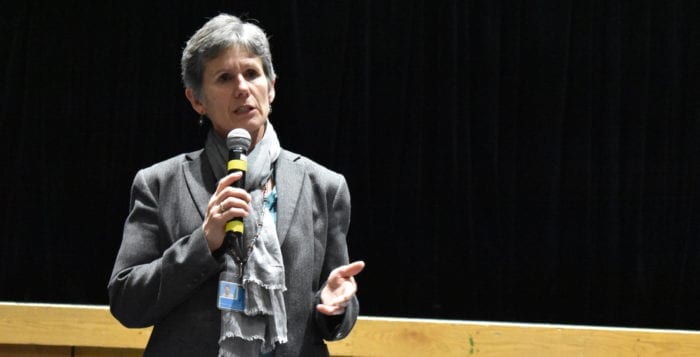
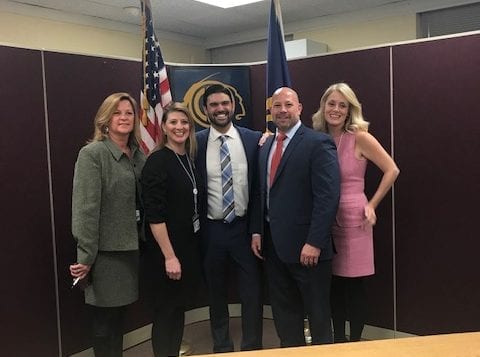
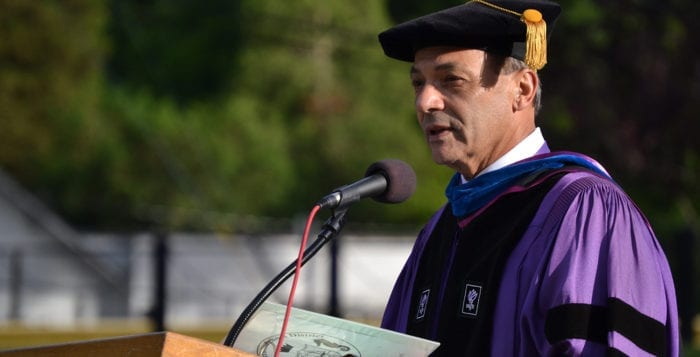
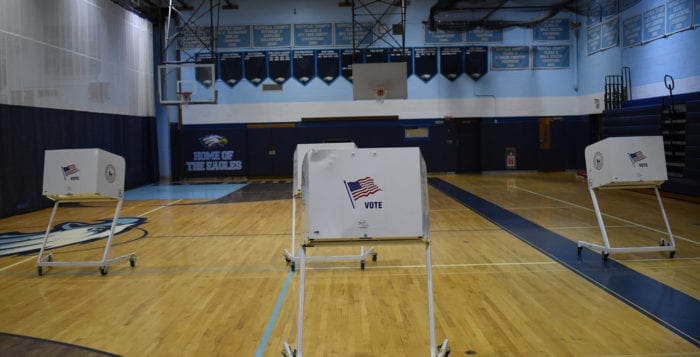


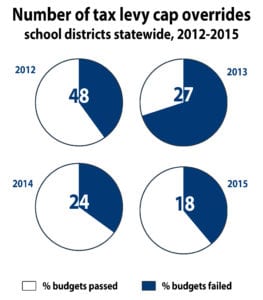 The state cap limits the amount a school district or municipality can increase its tax levy, which is the total amount collected in taxes, from budget to budget. While commonly referred to as a “2 percent tax cap,” it actually limits levy increases to 2 percent or the rate of inflation — whichever is lower — before certain excluded spending, like on capital projects and pension payments.
The state cap limits the amount a school district or municipality can increase its tax levy, which is the total amount collected in taxes, from budget to budget. While commonly referred to as a “2 percent tax cap,” it actually limits levy increases to 2 percent or the rate of inflation — whichever is lower — before certain excluded spending, like on capital projects and pension payments.